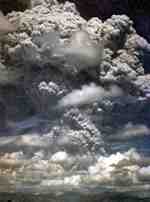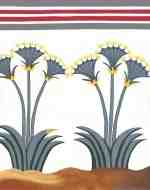Art
Advertising
- Advertising
- Tin (Cassiterite) Distribution: Mediterranean Bronze Age
- Archaeological Sites of the Aegean Minoans
- Extent of Santorini Eruption's Tsunami Inundation of Minoan Crete
- End of Minoan Linear A Writing and LM IB Fire Destruction of Crete
-
The Cause of the End of the Bronze Age
with the Scientific Method -
Nature Geoscience Journal and
Late Minoan IB Destruction Event - Prehistoric Star Navigation, Eastern Mediterranean Ethnocentric Bias, and the "Cabal of Certainty"
- Theoretical Bronze Age Minoan Heliographic Aegean Network Validated by 92.15 Mile (148.3 Km) Mirror Sunlight Flashes
- The Validation of a Bronze Age Minoan Heliographic Aegean Network in Southern California
- Tsunami Generation from the Titanic Bronze Age Minoan Eruption of the Santorini Marine Volcano
- The Cento Camerelle Mines of Tuscany: A Major Bronze Age Source of Tin
- No Men or Sails Required: Successful Prehistoric Sea Travel
- Minoan Downfall and Volcanology's Black Hole of Unknowns
- Homer and Navigating by the Stars in Prehistory
- Primacy of Human Powered Rowing in Copper Age and Minoan Shipping
- Minoan Invention of the True Dome and Arch Prehistoric Mediterranean Catenary Architecture
- "Sinking Atlantis" Tsunami Myth Debunked
- Minoan Tholos Structural Mechanics and the Garlo Well Temple
- Minoan Web of Mirrors and Scripts
- Santorini Eruption and LM IB Destruction
- Minoan Catastrophe: Pyroclastic Surge Theory
- Early Minoan Colonization of Spain
- Origin of the Sea Peoples
- Minoan Ship Construction
- Minoan Maritime Navigation
- Ringed Islands of Thera, Santorini, Greece
- Minoan Scientific Tradition
GIS Google Earth
Publications
Publications
Official Art Gallery
A Collection of 20 Paintings each with over 70 Art Products

Mirror Flash of Redirected Sunlight
Mt Baden-Powell & San Jacinto Peak
72.6 Miles, 116.9 Kms
using 12"x12" (30.5cm x 30.5cm)
Mirrors on both Ends
Varsity Scouting Operation On Target
Troop 128 (Mt Baden-Powell) &
Harringtons Group (San Jacinto Peak)
July 20, 2019
Southern California, US
Photo Credit - Troop 128
Mt Baden-Powell & San Jacinto Peak
72.6 Miles, 116.9 Kms
using 12"x12" (30.5cm x 30.5cm)
Mirrors on both Ends
Varsity Scouting Operation On Target
Troop 128 (Mt Baden-Powell) &
Harringtons Group (San Jacinto Peak)
July 20, 2019
Southern California, US
Photo Credit - Troop 128

PeakFinder App Synthetic View from
Mt Baden-Powell of San Jacinto Peak
72.6 Miles, 116.9 Kms
Southern California, US
Mt Baden-Powell of San Jacinto Peak
72.6 Miles, 116.9 Kms
Southern California, US
The validation process for an ancient Bronze Age Minoan Heliographic network in the Aegean is based on my research and publication from some years ago of "The Minoan Web of Mirrors and Scripts". I realized a mirror-based heliographic network was possible in the ancient Aegean Sea area where I lived for a time, especially with the knowledge that a "High-Tin" Copper alloy could produce a Bronze mirror with >= 85% reflectivity to visible light. Modern glass mirrors also have a reflectivity of >= 85% to visible light, therefore they are equivalent to the Bronze metal mirrors used during the Bronze Age.
These same "High-Tin" Copper alloy Bronze metal mirrors are still being produced today in Kerala, India and can be made to any size required. They are called "Aranmula Kannadi" and can be seen in these YouTube videos:
"Aranmula Kannadi Making EXCLUSIVE Secret Visuals - 7:21."
"Aranmula Kannadi - A Front Surface Reflection Mirror l Age Old Village Craft - 12:19."
A "High-Tin" Bronze metal mirror was used in the astronomer William Herschel's telescope that discovered the planet Uranus in 1781.
The longest link of any Aegean heliographic network is between the peak of Profitas Ilias on Santorini (Thera) and the peaks on Crete. The Varsity Scouts' 72.6 mile (116.9 Kms) mirror link between Mt Baden-Powell and San Jacinto exceeds the distance to Peak 403 on Crete (101.4% validated) and is 99.2% of the distance to Vasilikos Peak. For the well-known Cretan Minoan Peak Sanctuaries, it's 93.4% to Tylissos Pyrgos, 91.7% to Karfi, and 90.9% to Mt. Youkhtas just south of Knossos.
The Varsity Scouting Operation On Target in southern California conducts two heliographic mirror signaling activities every year. These events take place on the 3rd Saturday of July and September every summer under the leadership of Richard Fowell. The above (contrast enhanced) photo was taken on July 20, 2019 by Troop 128 and shows a flash of redirected sunlight from the Harringtons Group as seen by the unaided "naked" eye from a relatively small 12" x 12" (30.5cm x 30.5cm) mirror on top of San Jacinto (10,834 ft, 3,302 m) which is the highest peak in the San Jacinto Mountains of Riverside County, California as seen from the top of Mount Baden-Powell (9,407 ft, 2,867 m) in the San Gabriel Mountains of Los Angeles County, California. The confirmed distance between the photographer and the flashing mirror is 72.6 miles (116.9 Kms).
It has always been my preference for the undisputed "King" of the mountains and hills of Crete the Polish archaeologist Krzystof Nowicki to be involved with proving the viability of this theory because I know he can see the same profound "line-of-sight" correlations walking on Crete's mountain tops that I can see virtually with Google Earth.
A wonderful colleague Judith Weingarten recently said, "Great Boy Scouts project. Now to try in Aegean" and "Absolutely! It must be tested".
These same "High-Tin" Copper alloy Bronze metal mirrors are still being produced today in Kerala, India and can be made to any size required. They are called "Aranmula Kannadi" and can be seen in these YouTube videos:
"Aranmula Kannadi Making EXCLUSIVE Secret Visuals - 7:21."
"Aranmula Kannadi - A Front Surface Reflection Mirror l Age Old Village Craft - 12:19."
A "High-Tin" Bronze metal mirror was used in the astronomer William Herschel's telescope that discovered the planet Uranus in 1781.
The longest link of any Aegean heliographic network is between the peak of Profitas Ilias on Santorini (Thera) and the peaks on Crete. The Varsity Scouts' 72.6 mile (116.9 Kms) mirror link between Mt Baden-Powell and San Jacinto exceeds the distance to Peak 403 on Crete (101.4% validated) and is 99.2% of the distance to Vasilikos Peak. For the well-known Cretan Minoan Peak Sanctuaries, it's 93.4% to Tylissos Pyrgos, 91.7% to Karfi, and 90.9% to Mt. Youkhtas just south of Knossos.
The Varsity Scouting Operation On Target in southern California conducts two heliographic mirror signaling activities every year. These events take place on the 3rd Saturday of July and September every summer under the leadership of Richard Fowell. The above (contrast enhanced) photo was taken on July 20, 2019 by Troop 128 and shows a flash of redirected sunlight from the Harringtons Group as seen by the unaided "naked" eye from a relatively small 12" x 12" (30.5cm x 30.5cm) mirror on top of San Jacinto (10,834 ft, 3,302 m) which is the highest peak in the San Jacinto Mountains of Riverside County, California as seen from the top of Mount Baden-Powell (9,407 ft, 2,867 m) in the San Gabriel Mountains of Los Angeles County, California. The confirmed distance between the photographer and the flashing mirror is 72.6 miles (116.9 Kms).
It has always been my preference for the undisputed "King" of the mountains and hills of Crete the Polish archaeologist Krzystof Nowicki to be involved with proving the viability of this theory because I know he can see the same profound "line-of-sight" correlations walking on Crete's mountain tops that I can see virtually with Google Earth.
A wonderful colleague Judith Weingarten recently said, "Great Boy Scouts project. Now to try in Aegean" and "Absolutely! It must be tested".

The Distance between
Santorini (Thera) and Crete
67.2 Miles, 108.1 Kms
Southern Aegean Sea, Greece
Santorini (Thera) and Crete
67.2 Miles, 108.1 Kms
Southern Aegean Sea, Greece

The Distances between Profitas Ilias
Santorini (Thera) and various Peaks on Crete
including three Bronze Age Minoan Peak Sanctuaries
Southern Aegean Sea, Greece
Peak 403m, 71.6 Miles, 115.2 Kms
Vasilikos Peak 709m, 73.2 Miles, 117.8 Kms
Tylissos Pyrgos 670m, 77.7 Miles, 125.0 Kms
Karfi 1073m, 79.2 Miles, 127.5 Kms
Mt. Youkhtas 783m, 79.9 Miles, 128.6 Kms
Santorini (Thera) and various Peaks on Crete
including three Bronze Age Minoan Peak Sanctuaries
Southern Aegean Sea, Greece
Peak 403m, 71.6 Miles, 115.2 Kms
Vasilikos Peak 709m, 73.2 Miles, 117.8 Kms
Tylissos Pyrgos 670m, 77.7 Miles, 125.0 Kms
Karfi 1073m, 79.2 Miles, 127.5 Kms
Mt. Youkhtas 783m, 79.9 Miles, 128.6 Kms

Closeup of the Distances between Profitas Ilias
Santorini (Thera) and and two Non-Sanctuary Peaks on Crete
Southern Aegean Sea, Greece
Peak 403m, 71.6 Miles, 115.2 Kms
Vasilikos Peak 709m, 73.2 Miles, 117.8 Kms
Santorini (Thera) and and two Non-Sanctuary Peaks on Crete
Southern Aegean Sea, Greece
Peak 403m, 71.6 Miles, 115.2 Kms
Vasilikos Peak 709m, 73.2 Miles, 117.8 Kms
Interestingly, the top of Vasilikos which is only 0.6 miles (0.96 Kms) short of 100% validation is the site of a great deal of modern construction with many communications towers and antennas. It's actually blurred out in Google Earth to hide its apparently sensitive structures, etc. This makes me wonder if it was ever surveyed as a potential Minoan Peak Sanctuary because of the disruption and interference of the modern construction?

Geographical Range of the
Varsity Scouts
Operation On-Target Event
July 20, 2019
Southern California, US
Varsity Scouts
Operation On-Target Event
July 20, 2019
Southern California, US

Performance Chart for the
Varsity Scouts
Operation On-Target Event
July 20, 2019
Southern California, US
Varsity Scouts
Operation On-Target Event
July 20, 2019
Southern California, US
Another Annual Heliographic Long-Distance
Mirror Signaling Event in Australia
Mirror Signaling Event in Australia

Mirrors Flash the Message of Reconciliation
Wingecarribee Reconciliation Group
51 Miles, 82 Kms
Gibbergunyah Hill to Katoomba
New South Wales, Australia
Wingecarribee Reconciliation Group
51 Miles, 82 Kms
Gibbergunyah Hill to Katoomba
New South Wales, Australia
August 25, 2019
W. Sheppard Baird
Copyright © 2007, 2024 W. Sheppard Baird
All Rights Reserved
All Rights Reserved
-

Knossos Palace Reconstruction
Crete, Greece
-

Master Seal Restoration
Chania, Crete, Greece
-

Minoan Ladies in Blue Fresco
Knossos, Crete, Greece
-

Master Seal Impression
Chania, Crete, Greece
-

Minoan Gold Ring
Crete, Greece
-

Mt. Pinatubo Eruption
Luzon, Phillipines, 1991
-

Minoan Dolphins Restoration Fresco
Knossos, Crete, Greece
-

Minoan Gold Seal
Crete, Greece
-

Golden Ibex
Akrotiri, Santorini (Thera), Greece
-

Minoan Antelope Restoration Fresco
Akrotiri, Santorini (Thera), Greece
-

Minoan Sea Daffodils Restoration Fresco
Akrotiri, Santorini (Thera), Greece